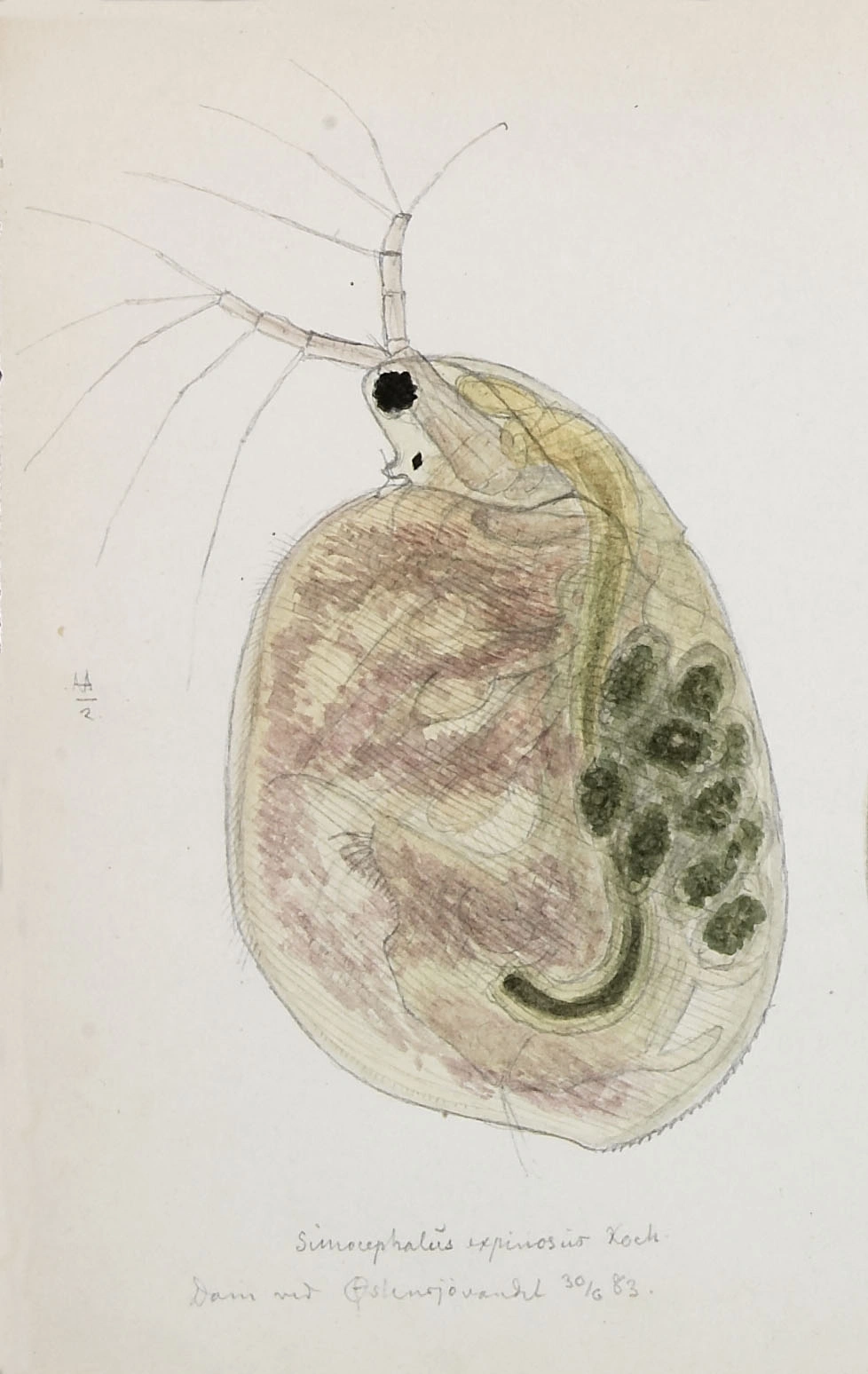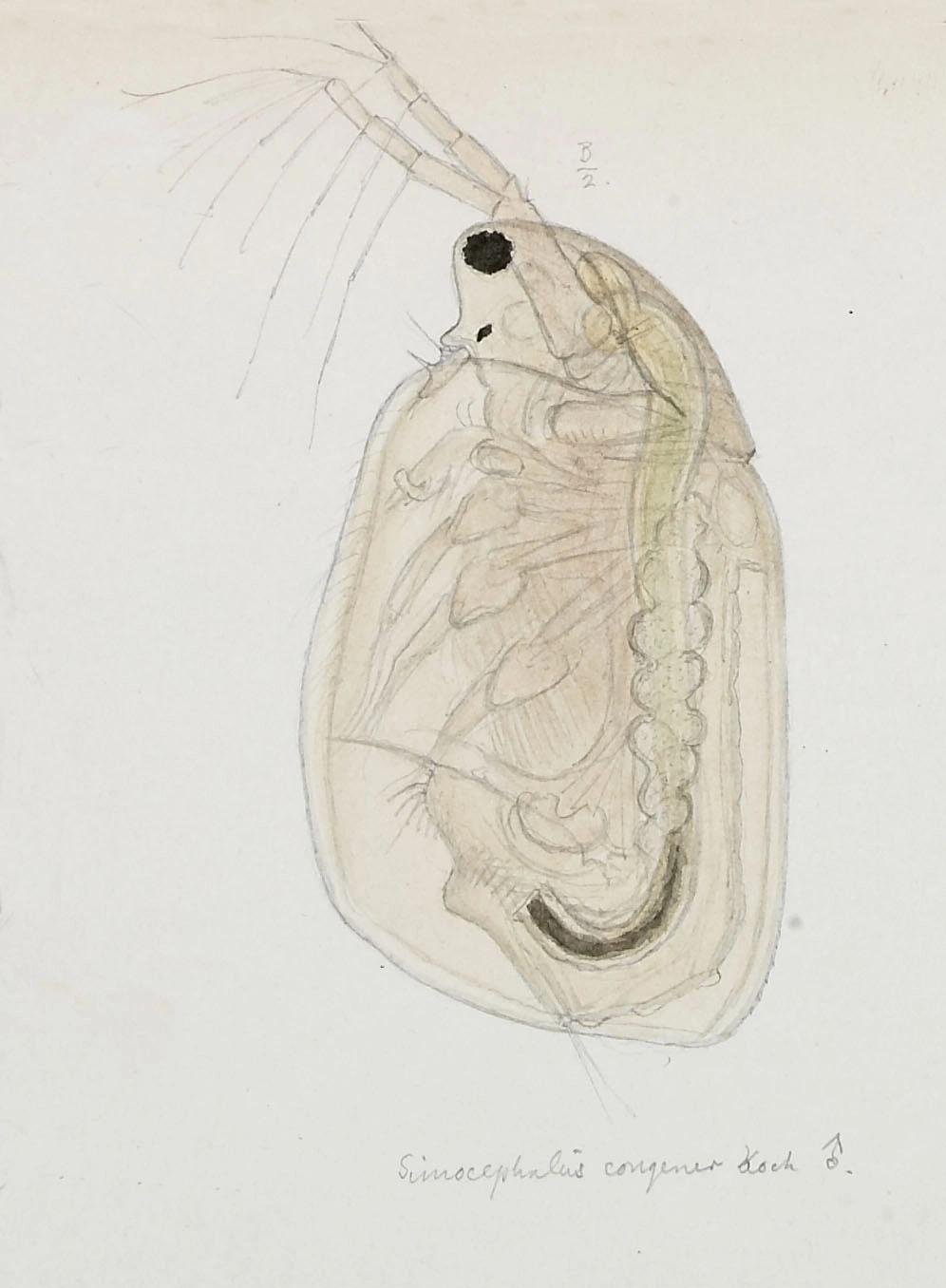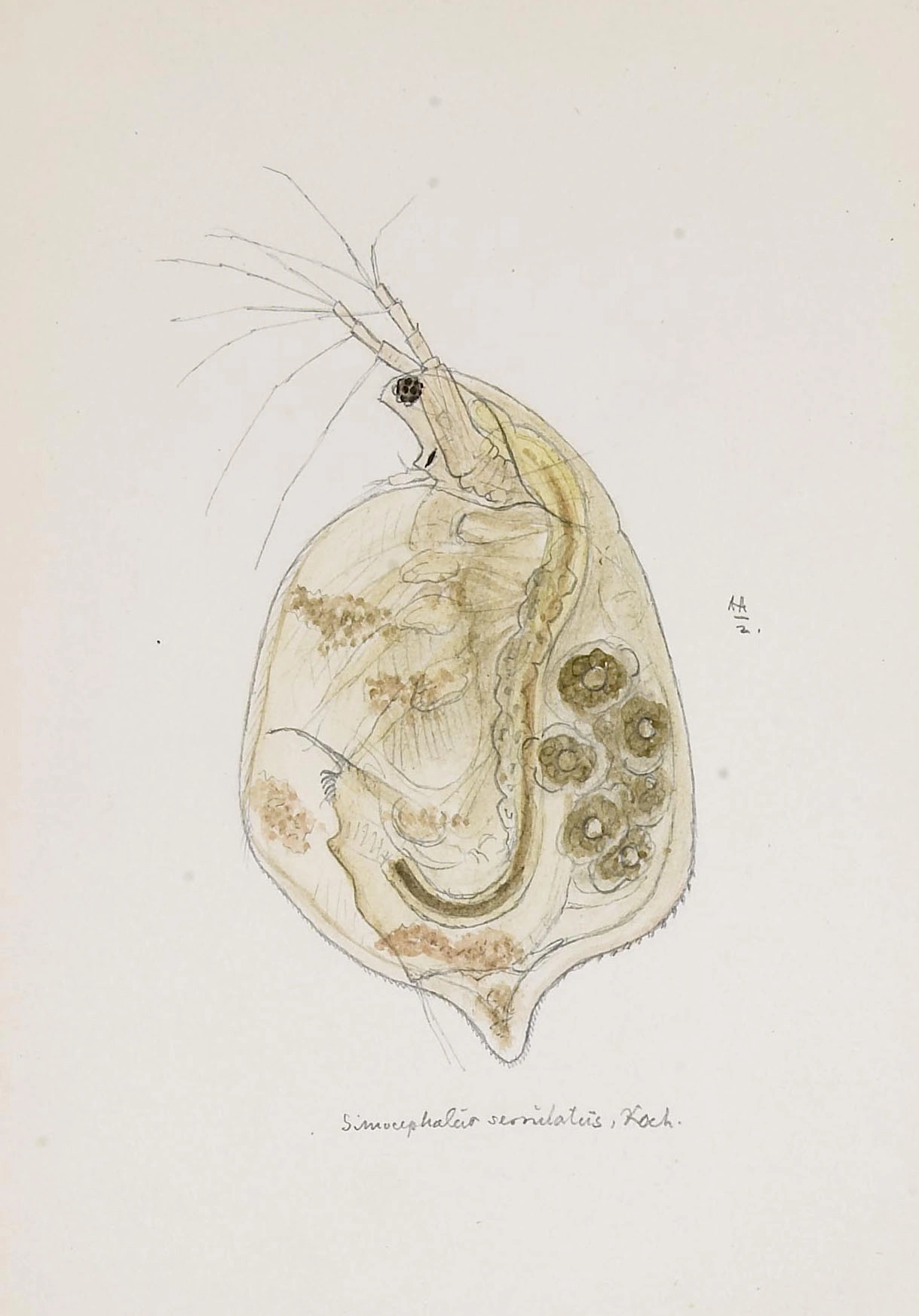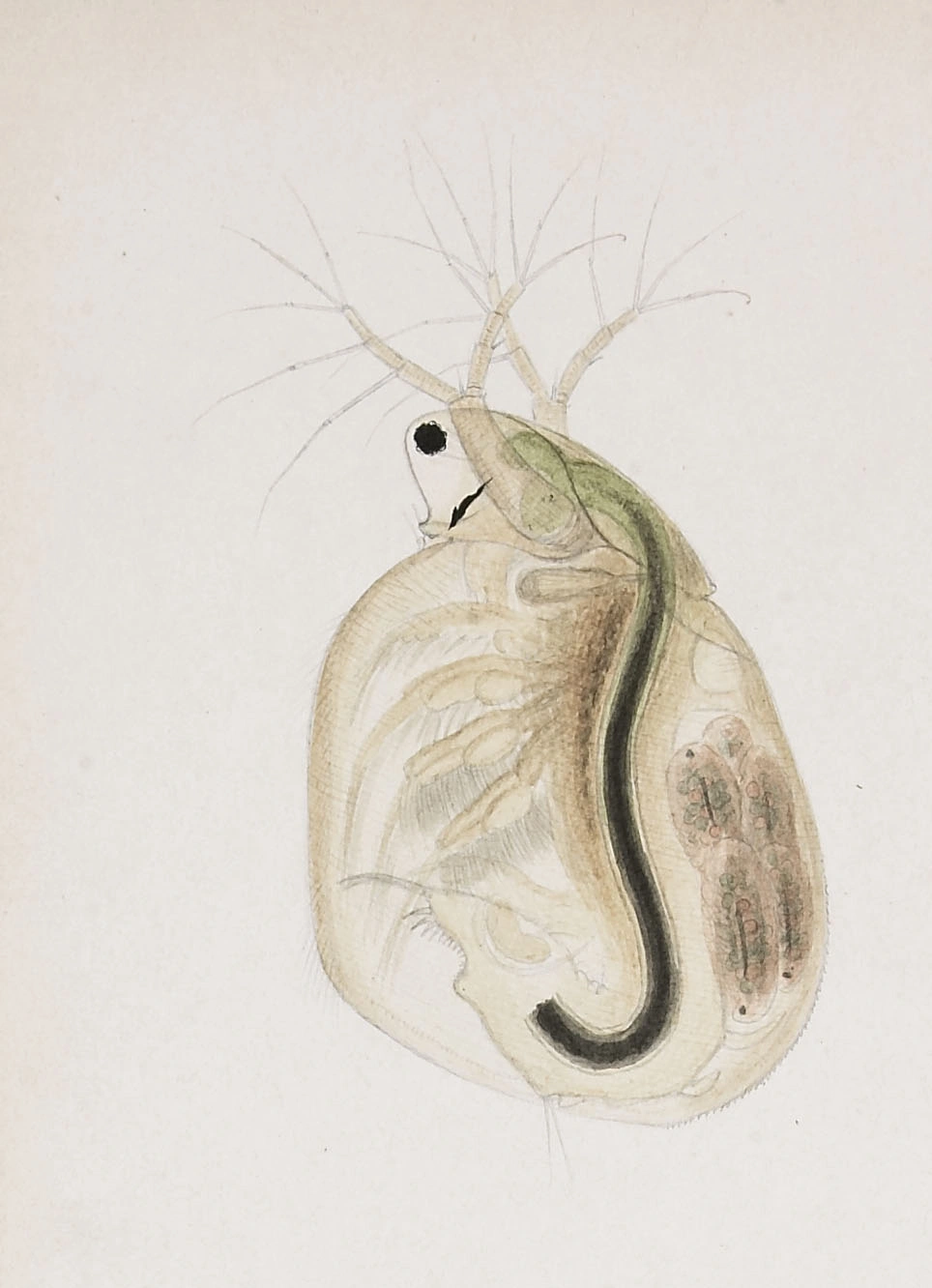Simocephalus exspinosus
Simocephalus expinosus seems to feel comfortable in small nutrient rich ditches and ponds. This is due to less competition from other species, which are more sensible to these conditions.
Key characteristics
Simocephalus expinosus (female)
Simocephalus expinosus (male)
The carapace of Simocephalus expinosus has a shape which is very similar to that of S. vetulus, even the head which is comparatively small, and noticeably delimited from the carapace by a depression on the dorsal side. In contrast to S. vetulus the eyespot is not elongated but more or less circular. The abdominal claw in S. expinosus is easily distinguished from the two other Simocephalus species having a varying number of teeth (12–22) at the base. S. expinosus is less transparent than S. vetulus and has a yellowish brownish-oliveaceus colour.
Female: Length 1.3–4.2 mm
Male: Length 1.0–1.5 mm
Ecology and distribution
According to G.O. Sars, this species was one of the most common cladocerans in the vicinity of Oslo. Since then, until the middle of the 1990s, this species was only found once in a pond north of Oslo. However in the last decade there have been about 100 records of this species, and with a few exception from the same region (south east). Water bodies containing S. expinosus are generally small, pH is about neutral and conductivity is high (>7 mS/m). All records are from localities situated below 500 m a.s.l.
| Vitenskapelig navn | < 4,5 | 4,5 - 4,9 | 5,0 - 5,4 | 5,5 - 5,9 | 6,0 - 6,4 | 6,5 - 7,0 | 7,0 - 7,4 | > 7,5 |
|---|---|---|---|---|---|---|---|---|
| 0 | 0 | 0,4 | 3 | 2,2 | 3,9 | 6,2 | 16,7 |
| Vitenskapelig navn | < 1,0 | 1,0 - 1,4 | 1,5 - 1,9 | 2,0 - 2,9 | 3,0 - 3,9 | 4,0 - 4,9 | 5,0 - 6,9 | 7,0 - 9,9 | > 10,0 |
|---|---|---|---|---|---|---|---|---|---|
| 0 | 0 | 0 | 0,7 | 0 | 1,9 | 2,4 | 10,2 | 20,7 |
| Vitenskapelig navn | < 0,01 | 0,01 - 0,09 | 0,1 - 0,9 | 1,0 - 9,9 | 10,0 - 99 | 100 - 999 | > 1000 |
|---|---|---|---|---|---|---|---|
| 9,8 | 17,9 | 3,5 | 1,6 | 0,3 | 0,5 | 6,5 |
| Vitenskapelig navn | < 100 | 100-299 | 300-499 | 500-699 | 700-999 | >1000 |
|---|---|---|---|---|---|---|
| 3,9 | 7,2 | 1,4 | 0 | 0 | 0 |
Look-alikes
Simocephalus serrulatus and S. vetulus



